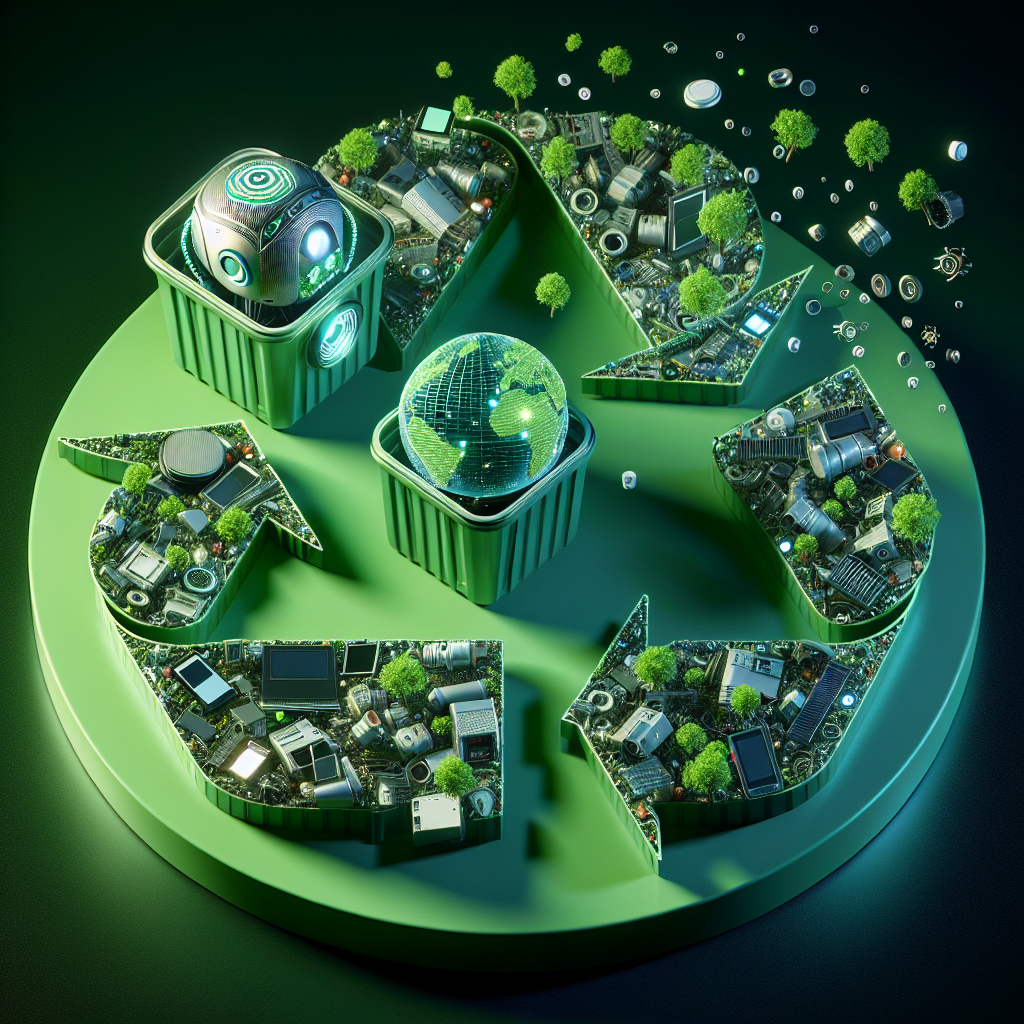Blog Ecobraz Eigre

AI applied to the circular economy: a new era in electronic waste management
The circular economy and electronic waste
The growing production of electronic devices has generated a significant increase in electronic waste, creating environmental and social challenges in the disposal and reuse of these materials. The circular economy has emerged as an efficient solution, promoting reuse, recycling and waste reduction, transforming waste into valuable resources.
The role of artificial intelligence in waste management
Artificial intelligence (AI) has revolutionized many sectors, and in e-waste management its impact is transformative. With advanced algorithms, AI is able to optimize sorting, identify recyclable materials and predict the useful life of components, making the process more efficient and sustainable.
Automation and intelligent sorting
Robots equipped with AI and computer vision are able to analyze electronic waste, automatically separating components such as precious metals, plastics and glass. This process increases the speed and accuracy of sorting, reducing operating costs and minimizing human error, which is essential for high-quality recycling.
Prediction and optimization in the life cycle of electronics
AI-based predictive models analyse the wear and tear of electronic equipment to estimate its useful life and the ideal time for disposal or repair, helping to prolong the use of resources and reduce waste generation. In addition, it helps with reverse logistics, optimizing waste collection and distribution routes.
Smart recycling and recovery of raw materials
AI also supports the development of more effective recycling processes, identifying specific methods for recovering valuable materials such as gold, copper and lithium, which are essential for new production. This increases waste recovery and strengthens the circular economy chain.
Challenges and future prospects
Despite advances, the application of AI in e-waste management still faces challenges such as the scalability of technologies, integration with existing systems and the need for robust public policies to encourage sustainable practices. However, continued technological advances and growing environmental awareness point to a promising future, where AI will be a key player in a more efficient recycling system.
Conclusion
Artificial intelligence applied to the circular economy represents a new era in e-waste management. By promoting efficiency, sustainability and innovation, AI makes it possible to transform the large volume of waste into reusable resources, making a decisive contribution to environmental preservation and the responsible use of natural resources.

Deixe um comentário
O seu endereço de e-mail não será publicado. Campos obrigatórios são marcados com *